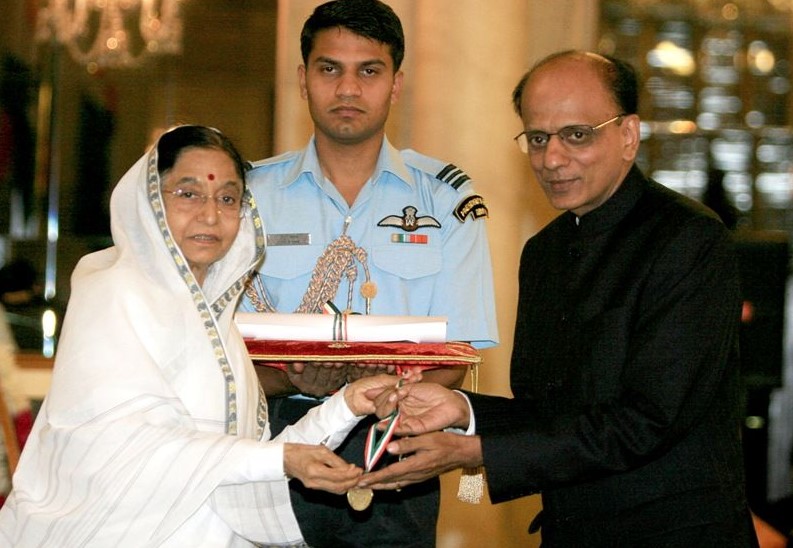On May 5,1982, on a hot afternoon, I entered the MGIMS medicine ward in Sevagram. Unlike the noisy government medical college, Nagpur where I was trained, this hospital sounded remarkably calm and tranquil. I ran into an unkempt resident in the medical ward doing a pleural tap at the patient’s bedside. With a stethoscope hanging around his neck—he was to wear a Littmann stetho around his neck all his life —he looked at me, barely able to conceal the puzzled expression on his face. He asked who I was and why I was there. I felt so self-conscious under his intense gaze. I told him that I was appointed a senior resident in the department of medicine and I wanted to see Dr. OP Gupta, the department head. A sweet smile descended on his face, he peeled the glove off, shook my hands, and introduced himself- “I am Krishan, you can also call me Kissu,” his face beaming with a sheepish grin and childlike innocence.

It took me only a week to realise why this resident had already earned a reputation of being an enfant terrible; to his colleagues, he was a prodigy. During his residency days, he displayed breathtaking energy: by 7.30 am, he had already done a ward round, ordered tests, written discharge summaries, and was ready for case presentations and journal clubs at 8.00 am. He had the makings of a giant when, as a medical resident at MGIMS, in the early 1980s, he kept on making diagnoses with remarkable accuracy- when there was no such thing as imaging or advanced biochemistry.
He instantly struck an empathetic chord with me- a chord that would last for four decades. Those were my early days at Sevagram and I used to spend a lot of time rounding the wards, teaching students, and roaming around with residents. What struck me was the incessant energy KK was endowed with—he would work almost 24/7 in the medicine wards of the old Kasturba Hospital, trying to unwrap mystery from complex medical maladies.
During one of the department reunions, Krishan recalled his MGIMS days, “MGIMS taught me how doctors diagnosed illness using their own senses, by poking, prodding, looking, listening. From these observations, a skilled doctor can make amazingly accurate inferences about what ails the patient. MGIMS taught me how to use such investigations as echocardiography, stress tests, and cardiac catheterization for patients with cardiac disorders. I realised that the full ritual of history and physical examination was necessary to establish that connection between tradition and technology. Those skills have stood me in good stead, all my life, and I am indebted to MGIMS and teachers for making me what I am.”
As I walk down memory lane, I am reminded of Krishan’s persona, his incredible charisma, and life story—starting from his serene childhood in Delhi and continuing through his admission to MGIMS. I can vividly recall his residency days in the hospital wards, his falling in love with research during medical school, and his ascent to the summit of cardiology to become the legend that he was. He shall always be remembered as the undisputed “king” of this discipline.
Admittedly, Krishan was known to have a temper and he was a difficult physician to work with. He was a workaholic, a man who strove hard to accomplish all he set out to do. As one who was never afraid to challenge the status quo, often going against the tide, he often angered his colleagues, incurring their wrath. Occasionally, his residents would find it difficult to put up with his ideas, often bordering on idiosyncrasies. However, even his critics cannot deny the impact he had on the world of medicine.
During his productive life, he made significant contributions to medical science, and to medical education. He received countless awards for his many contributions—too many to enumerate here. He achieved seemingly impossible milestones, received standing ovations during his orations, enthralled people by his communication skills, and had accolades conferred on his work. He has left an amazing legacy, too expansive to describe fully. His written and oral works—articles, chapters, and books, PowerPoint presentations, and orations—will continue to be instructive to present and future doctors, and the many awards and scholarships established by him or in his name will continue to aid and inspire them.
But his greatest legacy by far is the people, both patients, and colleagues, who benefited from his energy, his inventiveness, and his incessant passion for medicine. What I remember today is his insatiable curiosity, thirst for knowledge, and remarkable ability to bring science to the patients’ bedside. And his childlike innocence.
As the Covid pandemic hit the country, Krishan hugely contributed to dispelling myths associated with the spread and treatment of COVID-19 infection in society. He knew perfectly well how to use social media and YouTube to mass educate people. In his daily talks on Covid19, he would often cite the CNN coronavirus ad “In a time of uncertainty, facts provide clarity. In a time of anxiety, facts comfort. In a time of misinformation, facts are correct. In a time of division, facts unite. In a time of crisis, facts matter most.” to explain the importance of science and evidence in fighting the COVID-19 pandemic
Krishan passed away on 17 May 2021- after fighting a protracted battle with Covid at New Delhi’s All India Institute of Medical Sciences. As destiny would have it, Covid education had filled the last year of his life- he had spent hundreds of hours teaching, educating, counselling, and training people and physicians, nationwide.
“I do not want my death to be mourned, I would like you to celebrate it,” Krishan had once famously said. He also once said that death has its place in the overall landscape of one’s life. Only he could balance life’s moments with such a spiritual equanimity.
Rest in peace, Krishan. You succeeded in carving a very special place in Sevagram’s landscape. We shall miss you, forever.
Leave a Reply